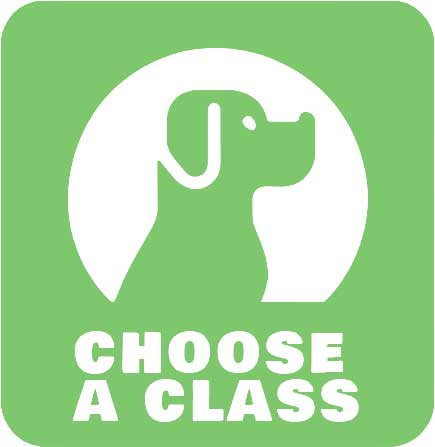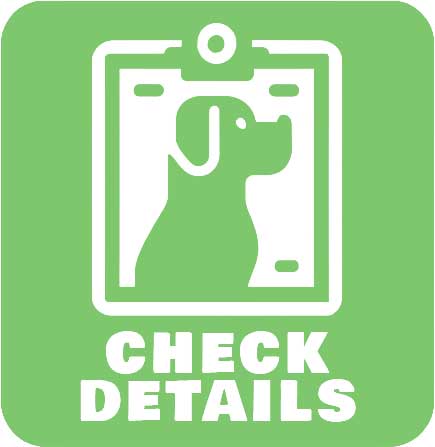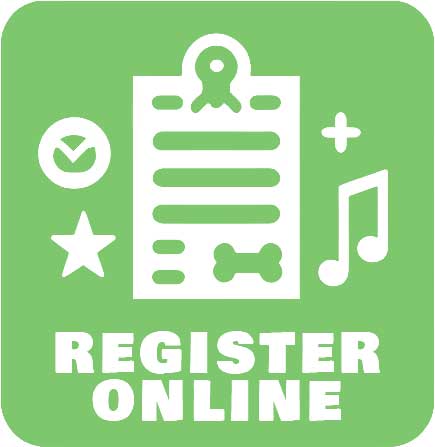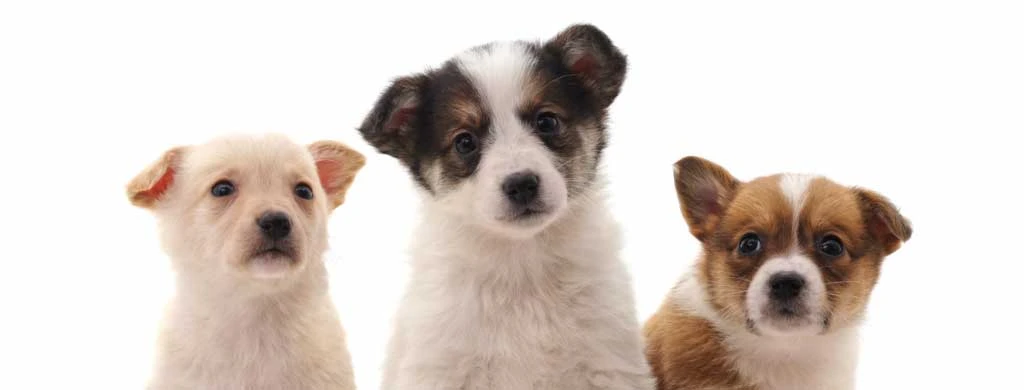4-Week Puppy School in Leichhardt $269 - Not Available atm But We Have a Class Near in Camperdown!
The Most Comprehensive Puppy Schools in Sydney!
Location: Leichhardt
Other locations for Eazy Dog Training puppy classes: Alexandria, Camperdown, Darlinghurst, Marrickville, Mascot, St Peters and Wolli Creek.
- Hands-On 4-Week Face-to-Face Puppy School in Leichhardt - Ensures Good Manners for Life!
- Affordable! Includes a Training Gift Worth $110 - A Training pouch & Online Puppy School!
- Structured Lessons Focused on Raising a Balanced Adult Dog - Covers All the Puppy Basics & Common Issues Such as Toilet Training, Biting, Chewing, Independence Training and More!
- Knowledgeable & Experienced Dog Trainer! Safe & Clean Learning Environment!
- Fun & Positive Dog Training Methods!

Check Out The Next Class Start Dates & Book Online
Eazy Dog Training
Based on 219 reviews

How to Book Your Puppy School?






CHECK OUT OUR NEXT AVAILABLE CLASS START DATES:

Puppy School in Leichhardt
This location not available at the moment, but we have a class close by in Camperdown instead!
4-week puppy pre-school in Inner West Sydney only $269!
Includes a training pouch and online puppy school!
What is the age range for puppies to join my puppy pre-schools?
Your puppy should be between the ages of 8-16 weeks old for the first class and must have had at least one vaccination.
Can’t make it to face-to-face classes? Book home puppy training visit instead! Click here!
How Old Should Your Puppy Be for Puppy School?
This is something that confuses a lot of people and as a puppy school trainer, I find this to be a very important thing to get right. Breeders and vets often advice against socialisation before the puppy is fully vaccinated at 16 weeks of age. Unfortunately, this is not good advice to follow. If you follow this advice you will end up with behavioural issues such as fearfulness, timidness, anti-social behaviours and aggression. And notice, I’m not saying you might end up with these issues, I’m saying you will!
Why? Because studies have taught us that if a puppy isn’t socialised before 16 weeks of age they will never be completely comfortable in unfamiliar situations. No amount of training will change this if a puppy lacked all positive socialisation experiences within the first 4 months. This is a survival instinct inherited from wolves. Things that puppies meet positively before 16 weeks of age becomes normal and acceptable. The more the better! However, after 16 weeks they change and aren’t adaptable to new situations any more. This is very common with rescue dogs that come from bad situations where they got no socialisation what so ever within the first 4 months. But, unfortunately, it’s also very common with puppies that are protected from experiences by their loving owners until the last vaccination. I’ve met hundreds of dogs like this, with severe anxiety and fearfulness -and in worst cases aggression!
8-12 Weeks Is the Best Time for Puppy Training and Socialisation
A puppy’s key developmental period ends around 12 weeks of age. This is why the first 12 weeks are the most important time for all kind of positive socialization. During this time a puppy is very receptive and adaptable to learning new things and they will get over new, first a bit scary situations a lot quicker than they would later on. So this is by far the easiest time for socialisation! If you want to raise a balanced, confident, social and friendly dog, this is the ideal time for puppy classes too. But don’t worry if your pup is older than 12 weeks of age, the 16 weeks of age limit still applies for socialisation experiences!

Eazy Dog Training Puppy Schools in Sydney
Eazy Dog Training runs puppy schools in Alexandria, Leichhardt, Newtown, Camperdown, Mascot, St Peters, Wolli Creek and Marrickville. So there’s plenty to choose from!
Our Puppy Pre-Schools are fun and educational 4-week puppy training and socialisation classes.
Every puppy attending our Puppy School in Leichhardt receives an Eazy Dog training gift incl. a training pouch and online puppy school!
Suitable for puppies aged 8-16 weeks.
In this Inner West Sydney Puppy School in Leichhardt your puppy will learn:
- Basic commands and manners
- Socialisation with other puppies and people
- Sound training
- Leash manners and greeting skills
- Fun tricks and mental stimulation games.
You will learn:
- How to better train and control your puppy through understanding how they experience the world around them.
- How to read your puppy’s body language and prevent issues in social situations.
- Calming handling techniques.
- A puppy’s view of the big wide world.
- Advice on common ‘unwanted’ puppy behaviours such as puppy biting, jumping up on people, hyperactivity, separation anxiety, toilet training etc.

This Puppy School Sydney Inner West includes
1st Class: Basic Obedience & Dog Training Basics
This first class teaches you how to train dogs in general and how to train your puppy. Puppy training should be fun, short and sweet! We will practise the 3 steps needed for all training, now and in the future. You’ll learn the importance of a dog’s point of view when training. Your puppy will lear sit, down, stay and come.
2nd Class: Socialisation
The second class is all about learning to read dogs’ body language. That way we can prevent behavioural issues in social situations. You will learn the importance of proper, positive, socialisation and how to do it right with other dogs, people, sounds, situations, environments, other animals and objects. We’ll also do sound training to desensitise and build a positive association with different sounds, positive handling and place training.
3rd Class: Polite Manners
The third class is all about everyday manners and boundaries. You wil learn how to prevent and stop any unwanted behaviours and how to set up boundaries – in a positive way! Your dog will learn impulse control, not jumping up and ‘leave it’ command.
4th Class: Mental Stimulation
Did you know that most unwanted behaviours are caused by boredom? Learn the importance of mental stimulation in order to prevent behavioural issues such as separation anxiety. We’ll practise tricks and learn new fun games to play together. And I can show you the lazy owner’s tools for mental stimulation – interactive toys! Education on walking your puppy!
The Key Is a Good Learning Foundation
All puppies need a good learning foundation to become confident and balanced adult dogs. That’s why training a puppy is more than just teaching basic commands such as sit and stay. The most important aspect of the learning process is to introduce puppies to the environments and situations they are likely to experience during their lives. Socialisation with different objects, people, dogs, other animals, surroundings, noises etc. is very important for the future of a puppy.
Your Puppy’s brain is like a sponge and every experience is stored away in their memory affecting their personality. While a puppy might be born with a certain temperament, it is the way they are raised and the experiences they have that will truly determine their personality. The more positive and enriching experiences, the more confident your dog will be as an adult.
The Key Is a Good Learning Foundation
Your behaviour and the way the puppy is handled will influence their development. Since punitive handling and harsh corrections will damage your pup as they mature, stay away from punitive trainers and any equipment that can be harmful, including shock, choke or prong collars.
Puppies need gentle guidance into making good decisions in their daily life. They need to be allowed to investigate and given positive reinforcement for good behaviour. They also need to be redirected from any unwanted behaviour. All puppies need boundaries, but these must be given in a humane way. A puppy that experiences fear or rough handling as growing up is more likely to become reactive and show aggressive behaviour later in life.
The time and effort spent giving your puppy a good learning foundation will pay off throughout their life. Puppies are certainly cute, but raising one can be very challenging. Seeing a pup develop into a confident adult, however, is worth all the hard work.
What is puppy training?
Puppy training is the process of teaching your puppy essential skills and good behaviour from an early age. It focuses on basic commands like sit, stay, come, and leash manners, as well as socialisation, impulse control, and problem-solving. Puppy training helps your dog develop good habits, builds a strong bond between you and your dog, and sets the foundation for a well-behaved dog in adulthood. It also addresses important skills for dealing with distractions, meeting new people or animals, and managing fear or anxiety in different environments.
What age can my puppy join puppy classes?
Any time from 8 weeks to 16 weeks of age, after their first vaccination at 6 weeks of age. Puppy schools are never run in public parks, only in private and safe spaces with no increased health risks from un-known dogs.
When is the best time to join puppy school?
As early as possible from 8 weeks of age. The best time to join puppy school is typically between 8 to 16 weeks of age. This is when puppies are most receptive to learning and socialising, and their critical developmental period for socialisation occurs. Early training helps set a strong foundation for good behaviour, builds confidence, and reduces the risk of behavioural issues in the future. However, even if your puppy is older, it’s never too late to start training and socialising them! Our teen classes are great for older puppies!
My puppy hasn't been fully vaccinated yet, can I still join puppy school?
Yes, in fact the most important socialisation period for dogs is 8-12 weeks of age, this is ideal for puppy school as well. Studies show no increased health risks in puppy schools and plenty of benefits. Puppy schools should always be run in private locations, not in public outdoors spaces. All our locations are safe and cleaned with F10 which vets use as well.
If you’re a fan of furry friends, you’ll love our Instagram! Follow the action for tips, tricks and live updates on the dogs we’re currently working with.
Think Private Home Puppy Training Is More Your Thing? Send Us Your Details to Book!
Use this form to enquire with us or to book private dog training in your own home and neighbourhood. And remember, you can book our group dog training classes 24h via our easy online booking – You don’t need to use this form for that!


